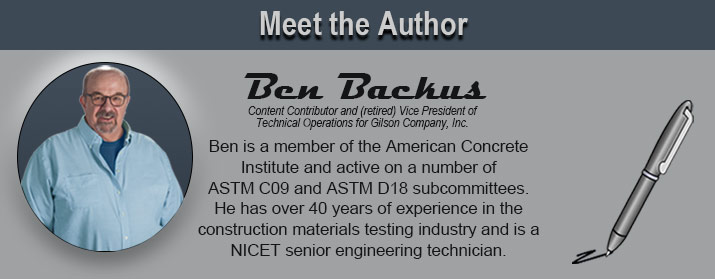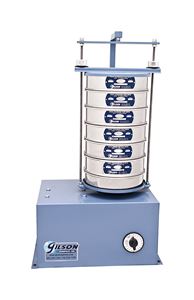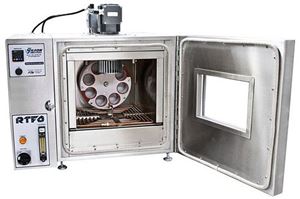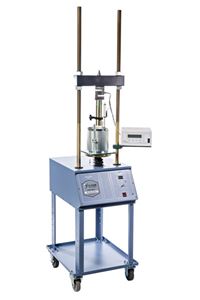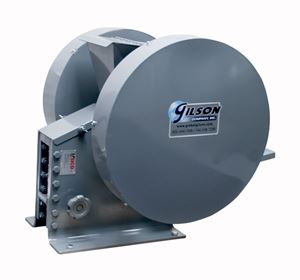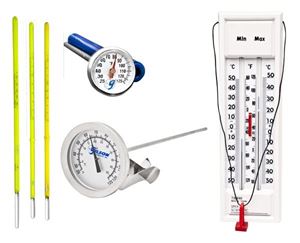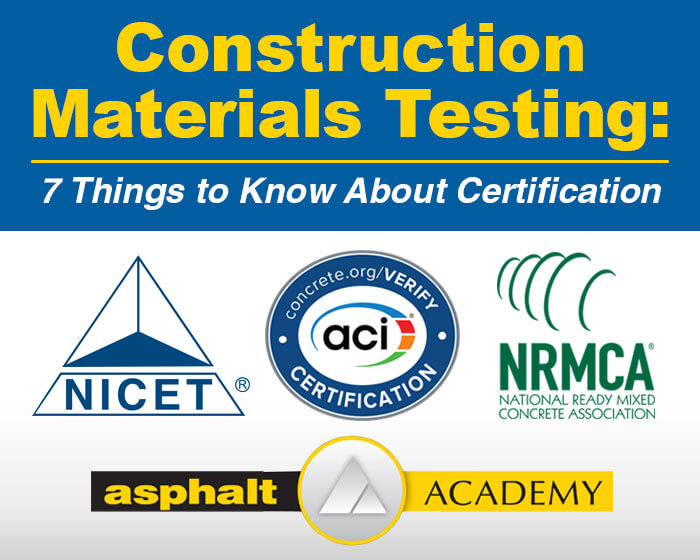
Training and certification of technicians assure competence and accountability when assessing the quality of the built environment, and the expectation of a higher level of consistently accurate test results.
This is the first in a series of informational blog posts from Gilson to help guide you to programs and training resources for certification and recertification within the professions of concrete, asphalt, aggregates, and soils/geotechnical testing. Information and resources contained within this blog post apply generally to these four areas.
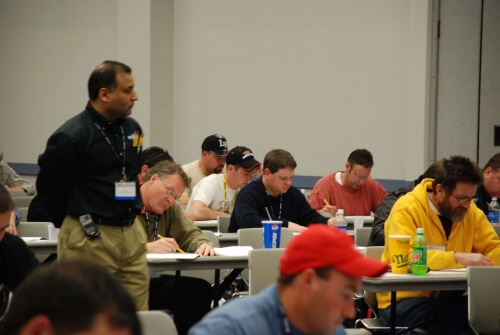
Photo credit: American Concrete Institute
No shortage of study resources
In addition to study materials supplied directly by the certification agencies, many other resources offer preparation and training for the certification exams. See the resource table at the end of this article for direct links to useful training materials. ASTM, AASHTO, Federal Highway Administration, State Departments of Transportation, and various trade associations are already sources of information in a specific area in construction materials testing, starting with concrete.
This post is intended to be more generic with guidance on how to arm yourself with information before the process gets underway. No matter which grade, level, or specialty of technician certification is pursued, the seven items discussed below will hopefully drive you along a smooth path to certification.
7 Things to Know for Construction Materials Testing Certification:
Certification matters
While not all specifications require certified technicians, many - including state and federal-government awarded projects - do. The Federal Highway Administration's Code of Federal Regulations, 23 CFR, Part 637, surrounding Quality Assurance (QA) Procedures for Construction state, “After June 29, 2000, all sampling and testing data to be used in the acceptance decision or the independent assurance program will be executed by qualified sampling and testing personnel.” That specific level of “qualification” required of workers in the field will be designated by employers, those who award construction projects, and other related decision-makers. By having a specific certification, you offer documentation of that qualification and demonstrate your additional training and experience.There is a difference between certificate and certification
It's important to understand that earning a certificate of completion for attending a seminar or workshop is not the same as preparing for, taking, and passing a required examination for a specific construction industry technician certification. However, that workshop can help in preparation for the certification exam.Levels of certification and requirements to achieve them
This can be confusing as there are many different technician levels and qualification parameters that can vary within the various testing agencies. For instance, those who hold an existing certification in certain specialties from the American Concrete Institute (ACI) may be exempt from having to repeat testing and work element requirements when taking an examination with the National Institute for Certification in Engineering Technologies® (NICET). Testing agencies offer concise and useful information on their websites regarding the process, preparation, and criteria to achieve the various certifications available, which lessens the confusion.Work experience credentials must document experience, knowledge, and competency
Certification testing programs that account for work experience require documentation and substantiation of the applicant's job-related knowledge and experiences. Individuals seeking a higher level certification, which is generally a more demanding process, will find this especially true. These programs are often broader and their scope encompasses more than just a few specific test procedures. Some NICET programs operate on this basis.Understand the exam structure
Is the test a written assessment, is it hands-on performance-based, or a combination of both? Do preparation materials include a practice test? What is considered passing or failing - and how soon can the exam be retaken if you don't earn a passing grade on the written exam? Most likely, you will need to retake the entire examination, not just the portion that failed.Preparing for the exam is important
These tests can be very detailed and you don't want to go into the testing room thinking that 20 years of field experience is all the preparation you need. Check out resources such as ASTM's E-Learning Construction Training courses designed to help prepare for certification exams in different fields. Similarly, the National Highway Institute (NHI), the training and education arm of the Federal Highway Administration (FHWA), has an extensive selection of web-based or instructor-led courses in its catalog. These courses offer both continuing education units and certifications in concrete, asphalt, aggregates, and soils/geotechnical; the CE courses could be a source for study and preparation materials.Certify through a recognized and accepted agency
Numerous organizations at local, state, and federal levels offer a vast selection of technician training programs, far too many to list here. For that reason, this series will focus on the most widely recognized national industry organizations that offer certification and re-certification programs - the American Concrete Institute (ACI), the National Ready Mixed Concrete Association (NRMCA), The Asphalt Institute, and the National Institute for Certification in Engineering Technologies (NICET). Each agency clearly outlines guidelines, criteria, and protocols for any given level of certification, including the progression to prepare and test for the next level.
The National Institute for Certification in Engineering Technologies is a division of the National Society of Professional Engineers. It was established in 1961 to ensure proper training of technical personnel in several different fields, including construction materials. Among their Civil Engineering Technologies certification programs are construction materials testing, geotechnical, and transportation, which includes many highway construction-related programs. NICET-certified technicians can advance to progressively higher levels of certification through additional testing and verification of work experience.
In summary, while the process of attaining any level of certification may seem daunting, it's not. The resources cited within this blog post are designed to provide the user with the best information to travel smoothly down the road to certification from start to finish. The list of useful resources contained in the box below is a good place to start. Additionally, as indicated earlier, your state DOT, regional agencies, and other related professional organizations should have online resources to help prepare for construction materials testing certifications.
| RESOURCE | SERVICES OFFERED |
| AASHTO | AASHTO laboratory accreditation through AMRL, technical assistance & training resources |
| American Concrete Institute (ACI) | Exams for ACI concrete certifications, exam preparation & study materials |
| Exams for asphalt certifications; webinars, seminars & training materials | |
| ASTM | List of E-learning construction courses for training and exam preparation |
| Cement and Concrete Reference Laboratory (CCRL) | Division of ASTM International, CCRL offers laboratory inspection & proficiency sample services |
| National Asphalt Pavement Association (NAPA) | Asphalt pavement training, webinars & other resources in the online bookstore |
| National Center for Asphalt Technology (at Auburn University) | Hands-on and online training courses, textbooks & other publications |
| National Highway Institute (a division of the Federal Highway Administration) | Web/in-house courses; study materials in asphalt, concrete, soil, geotechnical, etc. |
| National Institute for Certification in Engineering Technologies | Exams for NICET certifications in asphalt, concrete, geotechnical & soils |
| National Ready Mix Concrete Association (NRMCA) | Exams for NRMCA concrete certifications, exam preparation & study materials |
| State Departments of Transportation | Various seminars, training programs, and certifications |
| Regional Certification Programs | Various certifications and training specific to a geographical region |
| Penn State Engineering School | Multiple locations for ACI Concrete Technician certifications |
Gilson Is Here to Help
Contact our testing experts for more information or to discuss your testing application.
Testing Resources
Standard Test Methods, Specifications, and Practices
Individual test methods and specifications referenced in our product descriptions, blog articles, and videos are available for review or purchase from the professional organizations noted.
- ASTM International (American Society for Testing and Materials)
- AASHTO (American Association of State Highway and Transportation Officials)
- ACI (American Concrete Institute)
- State DOTs (Departments of Transportation)
- ISO (International Organization for Standardization)
- BS (British Standards)
- EN (European Standards)
